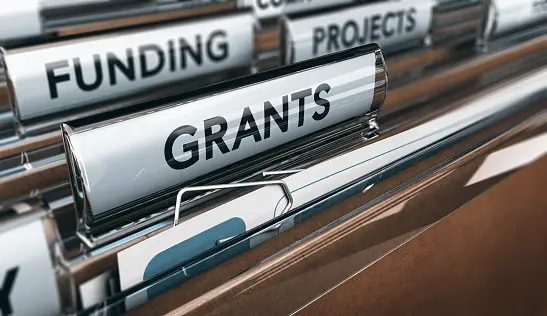Wondering How to Conduct Successful Grant Research?
We’ll show you how to locate quality prospects in this post so you can make the most of your writing efforts and enhance your chances of success.
It doesn’t matter how many funding agency believe in your organization and are willing to support it financially, there is the need for them to discover you. The first step in the process is to research grants and opportunities before you can begin your grant application process.
Grant research necessitates a level of planning and consideration that no software can give. However, there are a number of tools or platforms available online that may help you find and research funders while also making tracking your outcomes easier.
Online search databases, for example, are essential for swiftly finding new prospective grants by listing local and national foundations categorized by interest area, saving you time spent combing over catalogues and directories.
Some Web-based services can also assist you in locating local persons who are likely to make significant contributions to your organization.

The most common blunder made by grant writers and researchers is not being prepared. Before you start your prospect research, you need to know what you’re looking for.
It will be difficult to effectively discover possible funders if you do not know what you are seeking funds for or how much funding you require.
It’s also crucial to start planning ahead of time, as it might take up to 6-9 months from the time you apply for money to when you receive it. You must ensure that you are familiar with the funder’s policies, guidelines and restrictions, as some funders will refund expenses made prior to receiving grant cash, while others will not. You don’t want to spend money you won’t be able to earn back, so hold off on starting the project until you have enough money.
What to Do Before You Begin Researching Grant Prospects
Being prepared is essential for conducting efficient grant prospect research. Before you start looking for possible sponsors, you need to know what your organization’s fundraising needs are.
Most of the time, you’ll be looking for funding to help you with certain initiatives or programs. We’ve laid up a few critical stages to assist you get ready for prospect research.
- Discuss your strategic objectives for the next 12 to 24 months.
Meeting with your personnel and discussing your strategic goals for the next 12-24 months is the greatest method to understand your organization’s needs.
Although your projects will contribute to these strategic objectives, understanding the wider picture will help you link your organization with the right financing partners.
- Having a clear idea of your wider objectives can aid you in identifying prospects who are a suitable fit for the effect you want to make.
- Establish the scope of your project
Before you begin your research, make sure you have a clear picture of your project and know what you want to accomplish, who you’ll be serving, and how much money you’ll need to finish it.
- You should also create a timeline for the overall project, as you will need to apply for funds well ahead of when you want to start the project.
You’ll be able to focus and be more productive in your prospect research efforts if you have a clear understanding of the work you’re looking for money for. You’ll be able to narrow down your prospect list based on the sort of work, target audience, project budget, and other project specifics.
- Gather the necessary documents for the organization.
Gathering all of your organization’s paperwork, such as proof of nonprofit status, articles of incorporation, board meeting minutes, tax documents, and so on, is another wonderful approach to get ready for grant prospect research.
Most funders will expect you to upload or attach these documents to your grant application. You will be able to decide whether you can meet all of the standards of a certain funder if you have all of these things in one location.
You’ll be able to find the best potential donors once you’ve defined your strategic goals, specified your project, and acquired organizational documentation. You can look at which prospects correspond with your strategic goals, who could be able to fund the project, who funds work in your area, and who normally helps your target demographic. You will be more effective in your grant prospect research as a result of the planning you have done.
How do I find out if I’m a good candidate for funding?
- Examine Your Existing Contacts
Learning about existing relationships between your organization and your contacts is a terrific method to start identifying funding prospects. Many organizations have community members on their board of directors, volunteers, or private funders.
Make touch with these people and get a list of their own contacts. Local businesses, larger corporations, and even foundations could be among these relationships. Look into these people to see if they’d be interested in supporting your project.
- Network
After you’ve gone over your current list of contacts, you may use networking to extend it. Funders frequently attend grant writing conferences to teach sessions or network with organizations, which can help you expand your network.
You can also do some research before applying to see who funds comparable organizations. Many organizations have supporters listed on their websites, and you may look up their 990s in the same way you would for private foundations.
Local or regional nonprofit associations can also be a valuable resource because they frequently assist in the compilation of information on various sponsors or give grant research and writing training.
- Examine Current and Former Funders (Including Rejected Applications)
Current and former funders are one set of relationships that is frequently overlooked. Knowing who has previously sponsored your work or who has rejected a previous application can help you figure out if any of the same funders are worth considering again.
While some funders like to continue sponsoring groups with whom they have previously worked, and a previous relationship might be a wonderful place to start, others prefer to seek out new opportunities on a regular basis.
If you’ve been turned down by a funder before, you can still learn from the experience and use what you’ve learned to submit a more competitive application. Despite the fact that your application was rejected, you built a relationship with them that may help you stand out from the crowd.
Grant Research Tools or Platforms
- Foundation Directory Online: Foundation Directory Online maintains a large database of many different sorts of donor agencies, including foundations, municipalities, and corporations, with opportunities ranging from small to large. It’s an ancient grant search engine that’s been around for a long time and has a lot of information. It offers filters that allow you to quickly explore results based on a set of criteria, as well as visualizations that provide extensive or in-depth information about the donor agency. Because their services are reasonably priced, small nonprofits may be able to subscribe to them. For the “essential” level, subscription plans start at slightly over $30 per month.
- Grants.gov : Grants.gov is a fantastic search engine for NGOs having 501(c)3 status. It’s a completely free search engine.
It offers a comprehensive database of government grants covering a wide range of topics, from research grants to capital projects and large system reforms. Government grant opportunities have a bigger cash value than foundation awards, which can be worth millions of dollars.
- GrantStation: Its database includes both philanthropic and government funding options. It includes opportunities for both US-based and Canadian-based enterprises.
Its membership is all-encompassing, and it grants customers access to a variety of grantmaking tools, including webinars, instructional resources, and articles on a variety of themes. It is referred to be a “one-stop shop” for all grant-related matters. It has been in operation since 1999. Regular sales are held through affiliates such as TechSoup, allowing you to gain access at a significant discount.
Grant Watch: GrantWatch is a database of grant opportunities from foundations, the federal government, state governments, and local governments. It has a variety of membership plans and prices to accommodate any size nonprofit, making it affordable for most, as well as a low-cost weekly option at $18 per week. The most expensive level is merely $200 per year.
It has advanced search capabilities that allow you to narrow down grant opportunities based on a specific focus area, funding type, or geographic location. Small businesses can apply for grants through the platform. A glossary of “grantmaking terms” is included. You will be able to provide features such as deadline reminders and grant opportunity updates if you subscribe to its higher level subscription packages.
- Instrumentl is a fantastic tool because it combines grant discovery, research, and tracking in one convenient location. Once you create an account, you can set up a project which allows you to keep a saved grant search, while also tracking every grant opportunity related to that project in the same place.
Instrumentl will search its database for opportunities that match your fundraising requirements. These are then output into a Matches page, where you’ll be able to dive deeper and learn about each possible sponsor to develop your list of top grant prospects.
How to Find Out More About Your Best Grant Prospects
Once you’ve compiled a list of potential grant applicants, you’ll want to limit it down to your top choices so you can concentrate on grant writing.
The easiest method to cut down your list is to learn more about each possible funder and the types of projects and organizations they normally support. Your research will also assist you in learning about each funder’s requirements. We’ve listed a few major resources below that can assist you in obtaining this precise information.
- The Website of the Funder
The funder’s website is an excellent location to learn more about them. Their goals and priorities will be described on the website, as well as information on the application procedure. You’ll also discover contact information on the funder’s website, which you can use to reach out to someone before filing an application.
On their websites, some funders will additionally include specialized application documents or sample applications. Being able to look over the application documents during your prospect research can help you figure out how much time you’ll need to finish it.
The funder website may be an excellent resource for research grant proposal templates if you’re interested in learning how to apply for research funds. If no actual template is offered, you may be able to observe their special application needs, such as layout, formatting, and so on.
- Online information from third parties
You can research these organizations when you’ve discovered who they’ve financed or are actively sponsoring. You might be able to learn more about the funder’s experience by looking at the websites of these other organizations. While internet research may provide the information you require, contacting a contact at a previously supported group is also an excellent strategy to learn more.
You can ask questions that aren’t answered on the funder’s website or through other third-party sources if you have a relationship with the previously sponsored group. You may be able to learn whether organizations applied numerous times before being funded, how a particular funder reports, and how simple (or difficult) your contact found the funder to work with.
Direct information will help you assess whether or not the funder is a desirable partner and whether or not your organization is capable of handling all aspects of the fundraising process.
- Information from the government
Researching the funder’s tax returns is another excellent technique to discover more about them. Because private foundations, like your organization, are nonprofits, their tax information is public. This information may be more difficult to come by if you’re looking for funding from a different type of funder, but prospect research tools like Instrumentl can help.
- Councils of Nonprofit Organizations
Your local, regional, or statewide nonprofit council or organization is an excellent resource for all things nonprofit. This type of organization should include your organisation as a member, however there is often information available without a membership. These organizations or councils can provide information on potential funders, such as contact information and descriptions. They may even divide potential funders into categories based on the types of projects they generally support. If the funder is a nonprofit, they may be a member of the council, and you can use that information to link to information about them.
Nonprofit organizations and associations frequently host foundation and funder information sessions, where you can hear directly from funders about their priorities, application process, and other topics. These types of sessions will be very helpful as you may learn about foundations and funders that you had never heard of as well as find out details about the expectations of the grantmakers.
Grant Prospect Research Procedure
- Search for available grants
While you can begin your grant writing research simply through the internet, prospect research tools like Instrumentl can be a great help. These types of software applications and databases compile information on many funders and can assist you more readily obtain the information you are looking for.
Instrumentl, in particular, allows you to input a specific project and will then match that project with potential sponsors. You will get access to information on the funders which will help you be more effective in your grant prospect research.
Once you’ve compiled a list of potential donors, you may look into them further to see which ones are the greatest fits for your project and streamline your grant writing efforts.
Instrumentl is the only platform that integrates grant prospecting, tracking, and management together in one place.
- keep track of your awards
Grants are tracked in a variety of ways by different organizations and grant writers, but grant tracking software can be quite useful. If you’re a smaller business that doesn’t manage a lot of awards at once, spreadsheets using tools like Microsoft Excel or Google Docs might suffice.
However, grant monitoring software like Instrumentl can manage all grant information in one place for numerous donors, including applications, timeframes, reports, and more. These types of applications, as well as reminders, are available from Instrumentl to keep you on track with all obligations. A screenshot of Instrumentl’s tracking feature is shown below.
You want to track the same information whether you use simple spreadsheets or more complex software:
- The name of the funder
- Website
- The funder’s interests
- Giving capacity potential
- RFP deadlines and dates
You’ll start recording reporting dates, expenses, and any other information asked by the donor once you’ve received a grant.
It’s also crucial to keep track of all the grants you’ve applied for, even if you weren’t successful. This will aid your organization in comprehending its grant writing history as well as previous funder interactions. You’ll know whether you should apply or reapply to a given funder if you have employee turnover or if you’re looking for future support.
- Make your grant research a priority.
When completing grant writing research, it’s critical to figure out how much money you’ll need and what types of grants you’ll be eligible for. Larger grant sponsors typically have a more comprehensive application process and are more competitive. Grants from the government, particularly those from the federal government, are notoriously competitive and may not be the greatest fit for your group.
A research grant is another form of award that can be quite competitive. If you want to learn more about how to apply for research grants, look up information on others who have already obtained funding. Many research grant funders will include research grant proposal templates on their websites.
Prioritize applications to funders with whom you already have a working relationship. Whether it’s a previous funding arrangement, a rejection, or simply a mutual contact like a board member, your application will stand out since your name will be known.
In order to determine which types of grants you should apply for, you’ll need to compare your organization’s needs to your prospect research. You should also make sure that your organization’s resources, such as worker time, are appropriately utilized.
If you’ve done your homework and done it well, you’ll have a list of potential funders who are interested in your work and/or have previously financed comparable groups. You’ll also gain a better understanding of the expectations of potential funders, allowing you to ensure that your organization meets all eligibility requirements. You can complete well-written, competitive applications by concentrating your efforts on these funders.
- Examine the features of the grant research tool you’ve chosen.
You’ll want to use tools that can provide specifics on potential funding sources if you want to undertake successful grant prospect research. Your tool should assist you in the following ways:
- Make touch with the funder’s contacts.
- Conduct background checks on previous grantees using 990s or other records.
- Look for funders whose missions are similar to yours and your work.
- Use a variety of search terms, such as keyword, location, or funder name to find what you’re looking for.
- Using links, gain quick access to extra information.
In conclusion:
From the above post guideline, you could see how easy to conduct a successful grant research. Begin the process of researching grant opportunities for your nonprofits today using the above tools.




